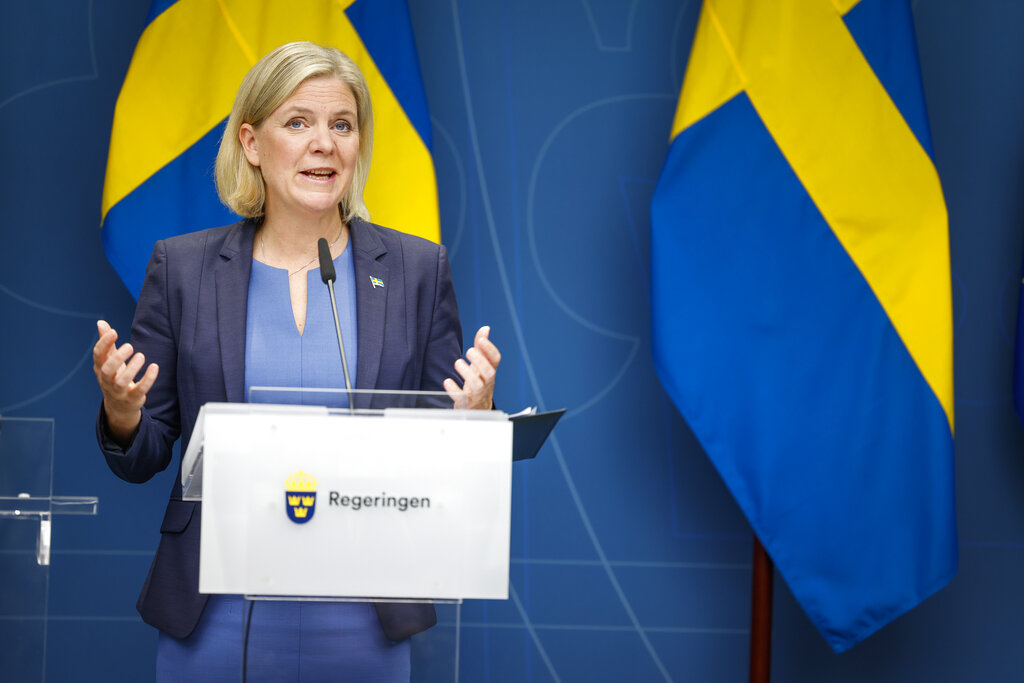Sweden’s first female prime minister is resigning after only one year in office following her party’s defeat at the hands of a right-wing bloc.
Prime Minister Magdalena Andersson announced to reporters on Wednesday that she would be leaving her position just moments before the country announced the election results, per a Bloomberg report. She said her resignation would be turned in early on Thursday.
Andersson’s party, the Social Democrats, lost their slim majority as of Wednesday. While the party received the largest amount of votes for a single party, preliminary results show that the right-wing bloc won 176 of 349 legislative seats with 99% of the votes totaled — another slim majority and the closest election in modern times. The right-wing bloc includes the nationalist Sweden Democrats and the center-right Moderate Party.

EIFFEL TOWER TO GO DARK EARLIER AS FRANCE STRIVES TO SAVE ENERGY
The new 2022-2026 session will begin on Sept. 26. Currently, Social Democrats hold 100 seats, Sweden Democrats hold 61, and Moderates hold 70.
Moderate Party leader Ulf Kristersson is set to become the next prime minister. While the Sweden Democrats received more votes, they would have a difficult time getting a majority to support their nationalist leader, Jimmie Akesson, for prime minister.
Andersson said to reporters that she has no plans on stepping down as the Social Democrats’ leader.
“If Ulf Kristersson’s alternative doesn’t hold, I am ready to lead,” Andersson said. “Sweden will be only one or two votes away from a government crisis.”
CLICK HERE TO READ MORE FROM THE WASHINGTON EXAMINER
Sweden Democrats and the Moderates garnered support from voters with policies that would reduce immigration to a minimum and install longer prison sentences, per Bloomberg.
“I am now starting the process to form a new, forceful government for all of Sweden and all citizens,” Kristersson said in a Facebook video. “There is a large frustration in society: fear over violence, worries about the economy. The world is very uncertain and the political polarization have become too large, even in Sweden.”
